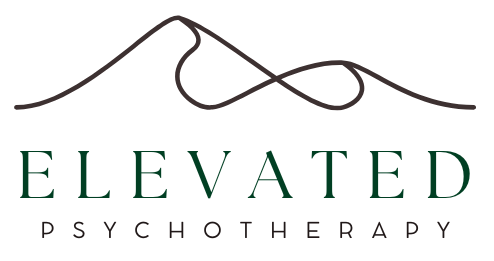
As Thanksgiving 2023 approached, I was looking forward to the usual traditions: gatherings with loved ones, delicious food, and moments of gratitude. What I didn’t expect was a life-altering experience that taught me a vital lesson about the dangers lurking in our medicine cabinet – Anticholinergic Toxicity, a serious drug interaction.
It all began with a simple antihistamine.
Shortly after taking it, I felt an unusual wave of emotions and a manic energy that I couldn’t shake. As the evening progressed, my condition worsened, culminating in a psychiatric hospitalization for what was documented as a “psychotic episode.” On Thanksgiving day, I found myself involuntarily hospitalized, playing Uno with a ‘half deck’—and I mean that both literally and figuratively. Literally, because our game only had half the usual number of cards. Figuratively, because the medication I was given left my cognitive faculties similarly lacking. My friends and family were terrified, and the medical staff, aware of my family history of schizophrenia, believed I was experiencing a severe psychotic break.
It wasn’t until a few weeks later that I pieced together the true cause of my symptoms: an anticholinergic drug interaction.
This revelation came through my own psychopharmacology education. I learned that the interaction between the antihistamine and other medications I was taking had triggered a drug-related toxidrome that mimicked psychosis.
Understanding Anticholinergic Toxicity
Anticholinergic toxicity occurs when substances inhibit the neurotransmitter acetylcholine, leading to a range of physical and mental symptoms. Inhibition of acetylcholine suppresses the parasympathetic nervous system, leaving our sympathetic nervous system (“fight or flight”) unchecked. Symptoms can include confusion, agitation, hallucinations, dry mouth, blurred vision, constipation, urinary retention, and tachycardia. In severe cases, it can result in delirium, seizures, and even coma.
Recognizing the Symptoms of Anticholinergic Toxicity
For healthcare professionals, recognizing the symptoms of this drug interaction is crucial.
The mnemonic “Mad as a hatter, blind as a bat, red as a beet, hot as a hare, dry as a bone” can help recall the key signs
– Mad as a hatter: Confusion, agitation, hallucinations – Blind as a bat: Blurred vision, dilated pupils – Red as a beet: Flushed skin – Hot as a hare: Hyperthermia – Dry as a bone: Dry mouth, urinary retention, constipation
Anticholinergic burden scales, such as the Anticholinergic Cognitive Burden (ACB) scale, the Credico Anticholinergic Load Scale (CALS), and the acbcalc.com scale, are valuable tools for assessing the cumulative anticholinergic load from medications that a patient may be taking.
These scales assign scores to medications based on their anticholinergic properties, with higher scores indicating a greater potential for cognitive impairment and other adverse effects. The ACB scale focuses on the cognitive impact of anticholinergic drugs, helping clinicians identify patients at risk for cognitive decline and delirium. The Credico Anticholinergic Load Scale provides a comprehensive evaluation of the anticholinergic burden, with 217 drugs listed. Furthermore, Acbcalc.com offers an online resource for calculating and understanding the anticholinergic load of different medications. Utilizing these scales can help healthcare professionals optimize medication regimens and minimize the risk of anticholinergic toxicity.
Recommendations for Clinicians
1. Thorough Medication Review: Always conduct a comprehensive review of all medications, including over-the-counter drugs and supplements, and substances that a patient is consuming.
2. Awareness and Education: Educate yourself and your team about the signs and symptoms of anticholinergic toxicity. Be particularly cautious with patients who have a history of mental health issues, as their symptoms can be easily misinterpreted.
3. Prompt Intervention: If anticholinergic toxicity is suspected, prompt intervention is crucial. There is an antidote—physostigmine—that can reverse the effects rapidly.
4. Patient Communication: Clearly communicate with patients about the potential risks of their medications and the importance of reporting new or unusual symptoms immediately.
Recommendations for Patients
1. Medication Management: Always inform your healthcare provider of all medications you are taking, including over-the-counter drugs and supplements.
2. Be Informed: Educate yourself about the medications you are prescribed and their potential interactions. Don’t hesitate to ask your provider questions.
3. Report Symptoms: If you experience unusual symptoms such as confusion, agitation, or severe dryness, seek medical attention promptly.
4. Regular Check-Ups: Schedule regular check-ups with your healthcare provider to review your medications and overall health.
My Mission
The symptoms resolved rapidly once the correct diagnosis was made, but the trauma of the experience lingers.
My ordeal highlighted a critical issue: the need for greater awareness and understanding of anticholinergic toxicity among healthcare professionals.
In August, I am presenting to mental health professionals at the Southwestern School for Behavioral Health Studies in Phoenix. I aim to share my story and spread awareness about this dangerous drug interaction. By doing so, I hope to prevent others from enduring similar experiences. It’s crucial for healthcare providers to recognize the signs of this condition and to understand the importance of proper medication management, substance use assessment, and patient education. Lastly, whether you are healthcare professionals, patients, or simply individuals interested in mental health, be vigilant about drug interactions. Always consult with your healthcare provider about any new medications and be aware of the potential side effects.
Have you experienced an unintentional overdose, or are looking for mental health support? Contact me for a free consultation to see how I can help.
Share This Story
Ashley M. Allen, PsyD is a Colorado-based licensed clinical psychologist who sees clients virtually nationwide through PSYPACT. Dr. Allen specializes in LGBTQ+, alternative lifestyles, emotional disorders, ADHD, BPD and chronic illness. Stay tuned to her blog for tips on mental wellness.


